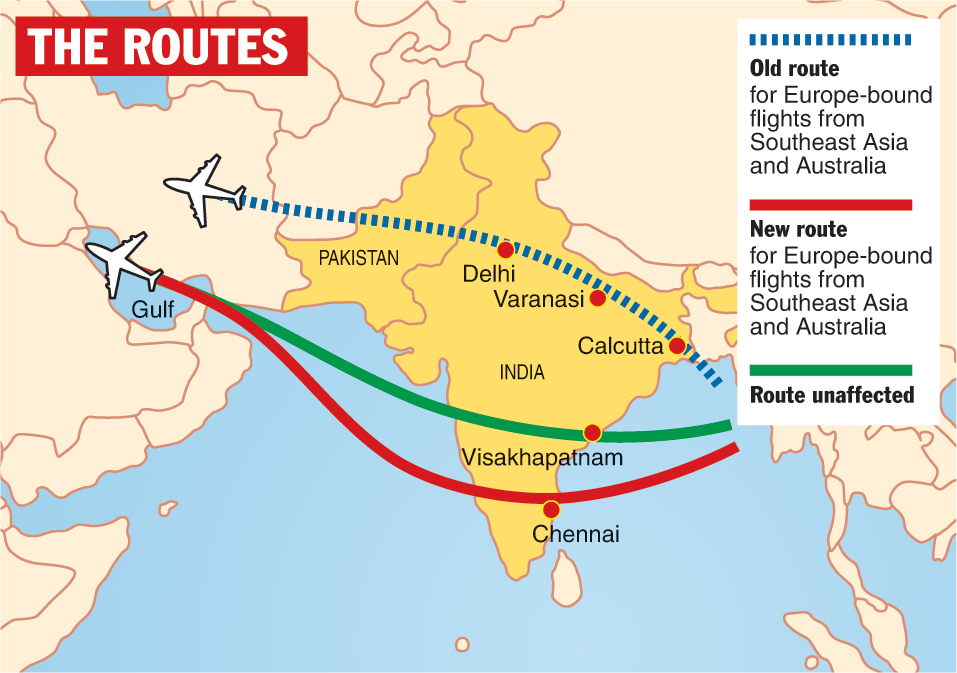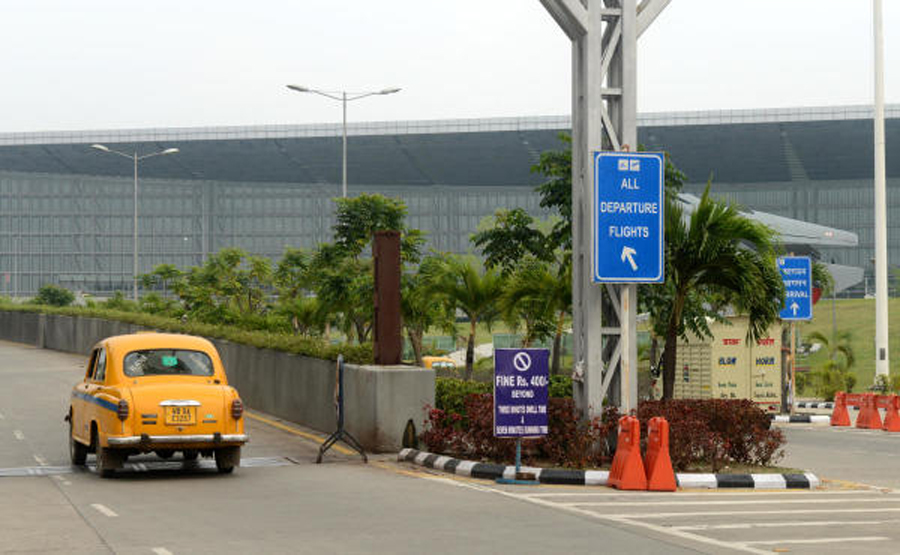A part of the revenue has been bypassing the Calcutta airport since Pakistan closed its airspace in the aftermath of India’s air strike in Balakot.
The diversion of the revenue is on account of Europe-bound overflying flights being forced to take a different route or being cancelled because of the curb imposed by Pakistan, officials said on Monday.
Pakistan’s civil aviation authorities had closed their airspace on February 27, a day after the Balakot strike.
The civil aviation authorities of that country had announced in a notification that the bar would remain in force till 1.30pm (India time) on Monday. They later announced that it would be lifted at 3.30pm (India time) on Tuesday, sources said.
Airport officials said Calcutta’s air traffic control (ATC) would earn Rs 17 to Rs 18 crore every fortnight from international flights that used its airspace. “This fortnight the earning might come down to Rs 10 crore because of Pakistan’s airspace restrictions,” an official at the city airport said.
The revenue earned by the Calcutta ATC has a bearing on the funds earmarked eventually for its development. Officials said that initially all the money goes to the central coffers of the ATC.
“But then how much Calcutta ATC earned is a factor that decides how much it gets,” an official said.
Around 300 international overflying flights would pay a fee to Calcutta’s air traffic control daily. The figure has come down to around 190 since February 27, sources said.
A flight which enters India’s airspace has to pay route navigation facility charges to the Airports Authority of India. The charges are calculated on the basis of the service unit levied, distance flown in the Indian airspace and the weight of the aircraft.
While calculating an aircraft’s weight, the maximum weight in kilogram prescribed by the manufacturer is taken into account, officials said.
“The ATC in India through whose airspace a flight enters the country charges the fee. The ATC hands over the money to the Airports Authority of India,” an official said.
“The charges are for using navigational equipment and the guidance provided by the air traffic control personnel. Also, the airports over which these aircraft fly keep provisions for emergency landing,” he said.
The international flights overflying Calcutta are mostly from Southeast Asia, Bangladesh and Australia, and were bound for Europe.
Earlier, the flights, after entering India through Calcutta ATC’s airspace would fly over Varanasi and Delhi before entering the Pakistani airspace.
A few flights enter India through Visakhapatnam and fly over the Arabian Sea, bypassing Pakistan. “The Visakhapatnam route is saturated. No extra flight can be accommodated there,” an Airports Authority of India official said.
Following the closure of the Pakistani airspace, most of the Europe-bound flights that would fly over Calcutta are entering India through Chennai’s airspace and flying over the Arabian Sea.
“Around 600 international flights would fly over Calcutta everyday in both directions before the Pakistani restrictions came into force. The number has come down to less than 400,” an official at the Calcutta airport said.
Of these, around 300 flights were bound for Europe and entered India through Calcutta’s flight information region, the airspace where flight movements are controlled by the city ATC. The rest would be flying from Europe and entering India through Delhi’s flight information region.
Apart from the international flights, Calcutta handles hundreds of domestic overflying flights. The airport also handles around 450 flights that land and take off daily.
A Calcutta airport official said earnings from aeronautical services were more compared with non-aeronautical operations, which are mainly commercial activities.
Across the world, airport’s are trying to increase their earnings from commercial operations. However, in 2017-18, the Calcutta airport had earned Rs 965.35 from aeronautical services, compared with Rs 265.08 crore from commercial operations, an official said.











